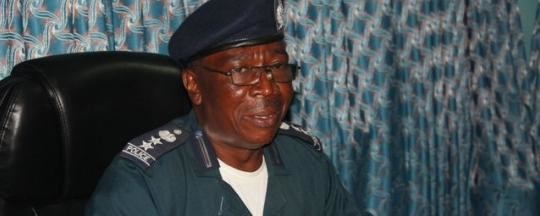The national police service in South Sudan’s capital city Juba today said that their new emergency response unit faces supply problems. Police Spokesman Colonel James Monday also acknowledged a rising crime rate, which he linked to ‘economic challenges.’
Colonel James Monday explained that the special 777 police unit faces fuel shortages: “The police are still supported by the 77, which is a rescue force. This 77 need to be supported. They are facing a lot of logistics in terms of fuel, in terms of maintenance for the vehicles and this is a situation which must be revealed so that there is support.”
‘777’ is the emergency call number in South Sudan’s capital Juba. It was set up last year after the UN Development Programme supported the training of the emergency call centre personnel. At the time of its launch, the 777 unit was described as an on-call response unit read for dispatch at any time of day.
The police official attributed the rising crime rate to the worsening economy: “In fact, commission of crimes have also got causes – causes goes back to the social and economic situation of the country. When you have many young people, they are jobless, and then a day can pass and they do not have good food, something to sustain, sometimes this criminal state of mind comes.”
“We know that South Sudan is passing through very serious economic challenges whereby even the government is facing challenges in meeting its obligations of providing services to the people. This reflects the economic situation of the country.”
“And therefore this affects the operation of the government machinery. Because to fight crimes you must be well-equipped with all the logistics that makes you to be movable, equipments… all these things needs resources,” he said.
Meanwhile, the price of a jerrycan of diesel rose to 120 SSP at the official sales rate and to 150 SSP in the black market, according to a Juba resident.
Want to comment on this story? Visit us on Facebook to join the discussion. Readers interested in sports are also invited to visit our Tamazuj Sports page for regular updates.




